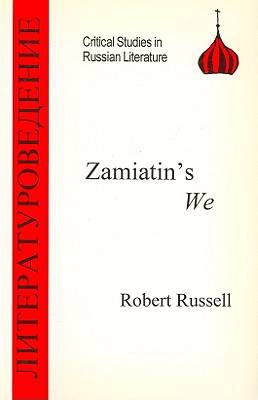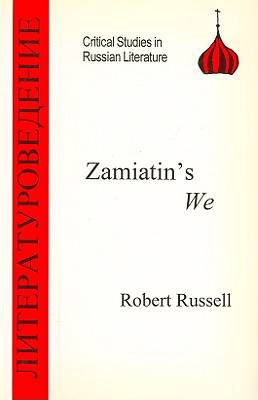
- Retrait gratuit dans votre magasin Club
- 7.000.000 titres dans notre catalogue
- Payer en toute sécurité
- Toujours un magasin près de chez vous
- Retrait gratuit dans votre magasin Club
- 7.000.0000 titres dans notre catalogue
- Payer en toute sécurité
- Toujours un magasin près de chez vous
Description
Evgenii Zamiatin's seminal antiutopian satire "We" (written 1920-1) is one of the most celebrated works of twentieth century Russian literature. Set one thousand years in the future, it is a witty yet terrifying picture of a future society in which reason is all-conquering and mankind has been enslaved by a dictator called 'the benefactor'. This new study presents both a synthesis of existing criticism and a new reading of the novel. The first section deals with "We" in the context of the Russian Civil War, showing how Zamiatin's contemporaries interpreted it as a satire on life in Soviet Russia. The major trends in the diverse body of modern criticism are then surveyed. The longer second part of the study consists of a detailed reading of the novel based on close textual analysis of the forty 'entries' of its narrator's diary.
Spécifications
Parties prenantes
- Auteur(s) :
- Editeur:
Contenu
- Nombre de pages :
- 137
- Langue:
- Anglais
- Collection :
Caractéristiques
- EAN:
- 9781853993930
- Date de parution :
- 24-02-00
- Format:
- Livre broché
- Format numérique:
- Trade paperback (VS)
- Dimensions :
- 139 mm x 216 mm
- Poids :
- 185 g

Les avis
Nous publions uniquement les avis qui respectent les conditions requises. Consultez nos conditions pour les avis.






